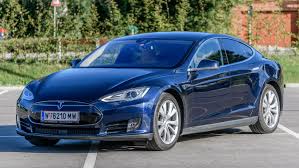The Tesla Model S: Revolutionizing Electric Vehicles

Introduction
The Tesla Model S is a flagship electric vehicle that has transformed the automotive landscape since its introduction in 2012. As one of the first fully electric sedans to compete with high-end luxury cars, the Model S has set new standards in performance, technology, and sustainability. With growing concerns about climate change, the relevance of electric vehicles like the Model S has never been more pronounced.
Key Features and Innovations
The latest iteration of the Tesla Model S is equipped with impressive technological advancements that enhance the driving experience. The car boasts a range of over 400 miles on a single charge, making it one of the most efficient electric vehicles on the market. Its dual-motor all-wheel drive allows for exceptional acceleration, with the Plaid version reaching 0 to 60 mph in under 2 seconds, emphasizing Tesla’s commitment to performance.
Moreover, the Model S features cutting-edge technology such as the Autopilot system, which provides semi-automated driving capabilities. Continuous over-the-air updates ensure that owners have access to the latest software improvements without the need to visit a service center. The spacious interior, with a minimalist design and a large touchscreen interface, adds to the luxury feel of the vehicle.
Market Impact and Future Trends
The success of the Tesla Model S has significantly influenced the electric vehicle market. Its popularity has prompted traditional automakers to accelerate their electric vehicle programs, resulting in increased competition in the segment. Major brands like Ford, General Motors, and Volkswagen are now heavily investing in electric options, aiming to capture a share of the market that Tesla has dominated for years.
As the market evolves, the demand for electric vehicles is projected to rise dramatically. Analysts predict that by 2030, electric cars could make up 30% of total vehicle sales. This shift will likely be fueled by advancements in battery technology, government incentives, and a growing focus on reducing carbon emissions.
Conclusion
The Tesla Model S has not only reshaped consumer perceptions of electric vehicles but has also sparked a larger movement towards sustainable transportation. As the industry continues to innovate and evolve, the Model S remains a benchmark in performance, technology, and luxury. For potential buyers and car enthusiasts alike, understanding the implications of Tesla’s innovations will be crucial in navigating the future of the automotive world.









